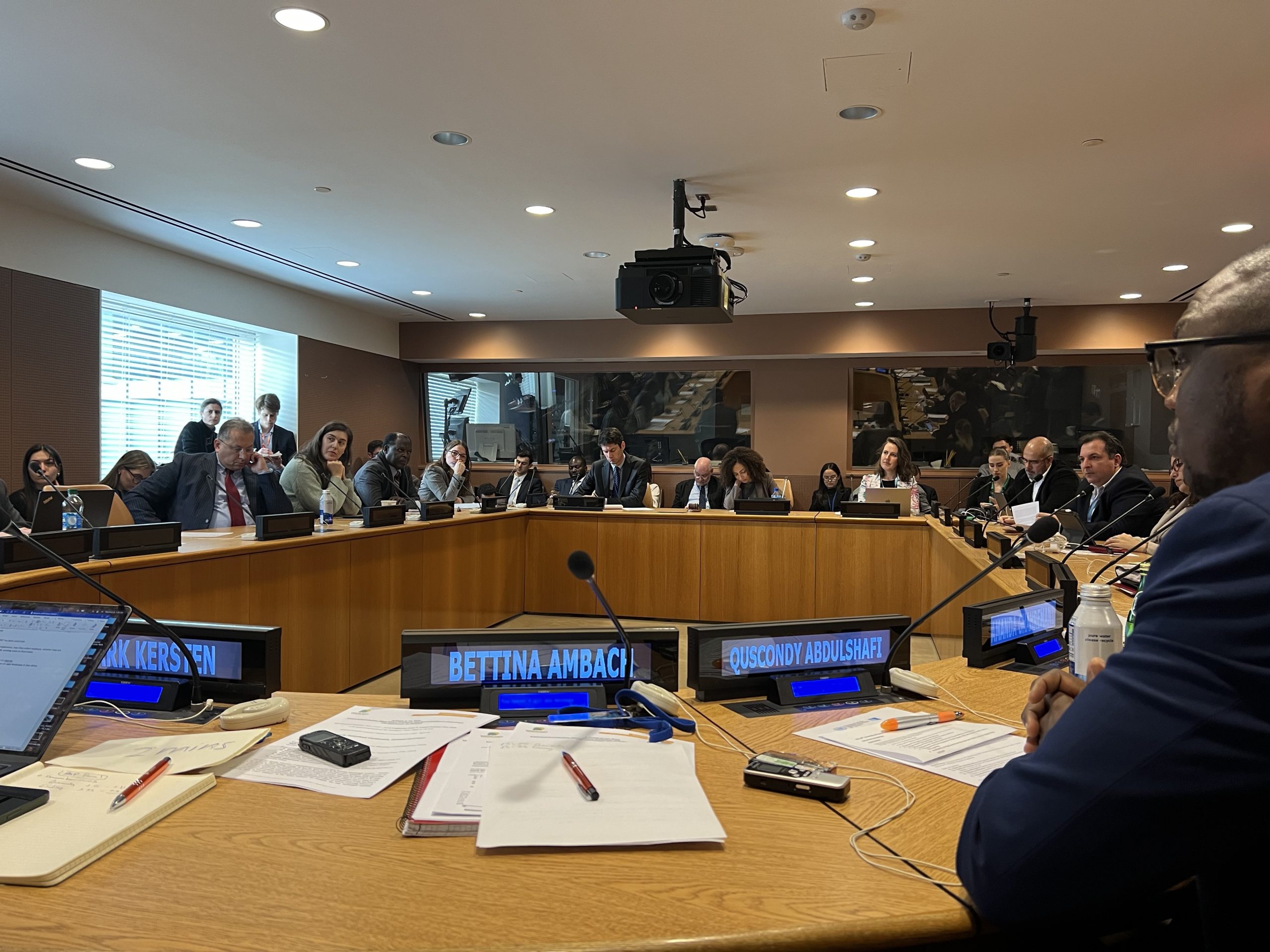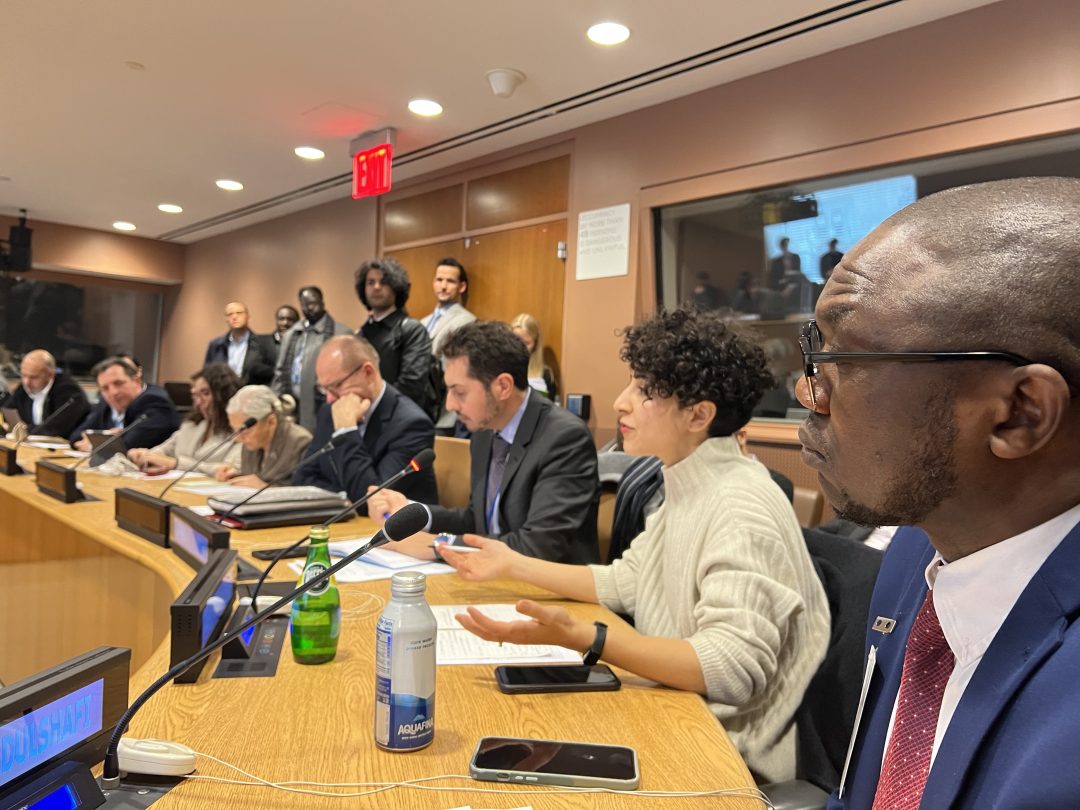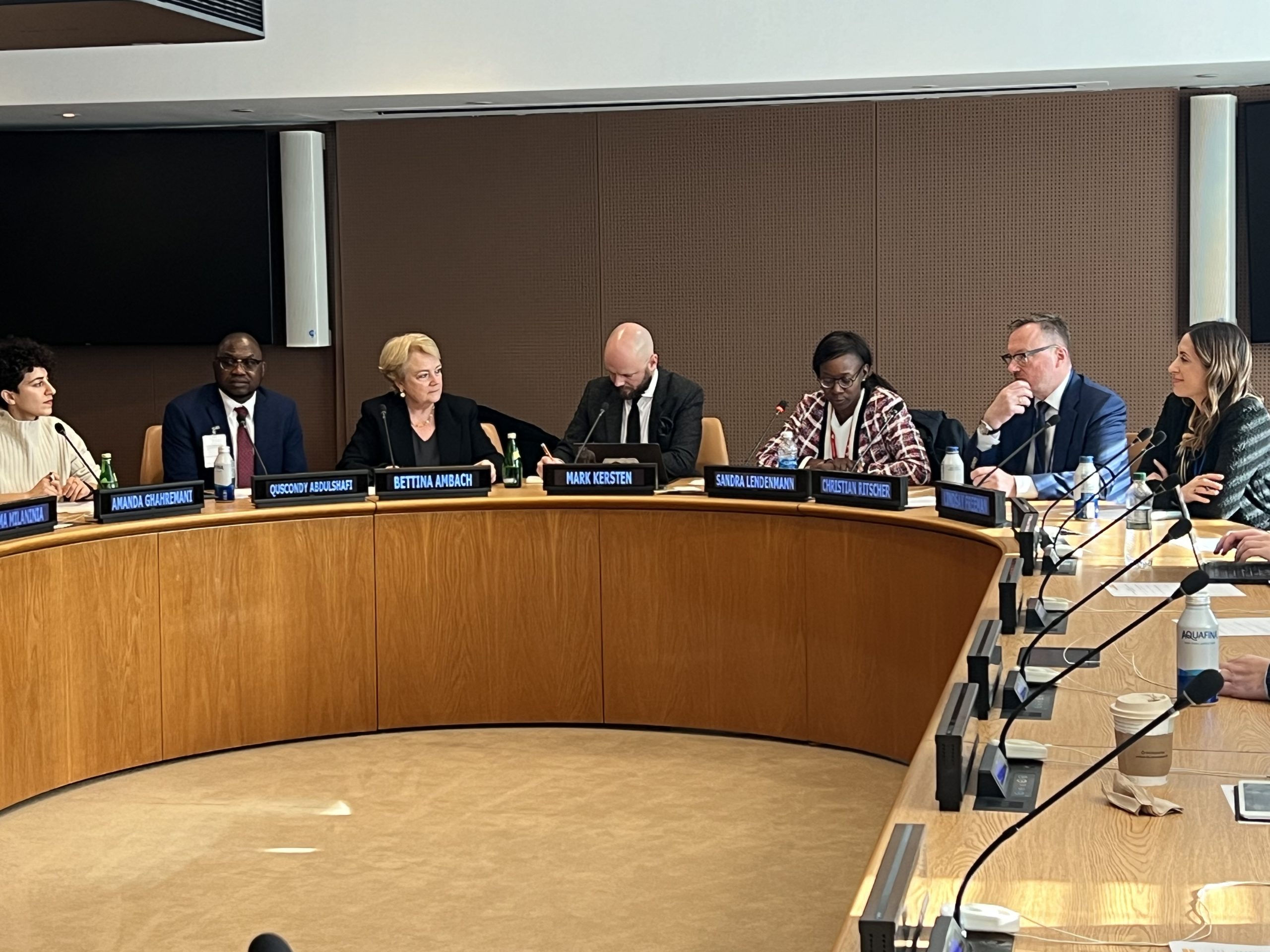On 6 December 2023, the Wayamo Foundation held a side event at the Assembly of States Parties of the International Criminal Court (ICC), at the headquarters of the United Nations in New York City. The event, entitled “A Crack in the Wall: Universal Jurisdiction, Open-Source Evidence and Accountability in Hard Cases (an opportunity for Sudan?)” was co-hosted by The Netherlands, Switzerland, Liechtenstein, Germany and France.
The event focused on three interrelated themes that have been the focus of Wayamo’s recent programming: the war in Sudan and the atrocities committed in the context of that conflict; the relevance and applicability of open-source evidence and information in building cases against atrocity crime perpetrators; and the potential exercise of universal jurisdiction in the context of East Africa.
The event was opened by Ambassador Sandra Lendenmann Winterberg, Vice-Director, Directorate of International Law, Federal Department of Foreign Affairs of Switzerland, who welcomed the seventy-five guests and panellists present. Ambassador Lendernmann was followed by Wayamo Director Bettina Ambach, who spoke to Wayamo’s ongoing work to address international crimes in the context of Sudan through, among other things, documentation of human rights violations with a special focus on open-source information and the exploration of universal jurisdiction cases.

The first panellist, Quscondy Abdulshafi, Senior Regional Advisor-Africa at Freedom House provided an overview of the conflict dynamics in Sudan since 9 April 2023. Abdulshafi described some of the atrocities that had been committed by the warring factions and detailed the limited accountability mechanisms –in relation to both international criminal law and transitional justice– available to victims and survivors of atrocities in the country.
Lindsay Freeman, Director of Technology, Law and Policy at the Human Rights Centre, Berkeley School of Law, remarked on how much has changed with respect to the conduct of investigations. Having been at the ICC when the investigation into the Darfur situation was opened, Freeman noted how much more attention is now being paid to open-source evidence collection in the Office of the Prosecutor. She also underscored the relevance and applicability of this evidence to case construction and accountability efforts for international crimes.
Picking up where Freeman had left off, Nema Milaninia, Special Advisor to the U.S. Ambassador-at-Large for Global Criminal Justice, described the use of open-source intelligence and evidence in a number of cases, including a handful at the ICC. He elaborated on numerous efforts to build such cases in various contexts and the important role they can play in relation to atrocities committed in Sudan, Ukraine, the Central African Republic and elsewhere. Milaninia also emphasised that open-source evidence does not displace traditional forms of evidence but should work in conjunction with them to build the strongest possible case against the perpetrators of atrocity crimes.
Christian Ritscher, Special Adviser and Head of the United Nations Investigative Team to Promote Accountability for Crimes Committed by Da’esh/ISIL (UNITAD), described UNITAD’s experience of investigating complex international crimes in Iraq, processes of evidence collection and sharing with third-party states. Their activities consisted of interviewing witnesses, collecting and digitising documentary evidence, working with a lab capable of extracting digital information from smartphones, and organising mass-grave excavations.
Legal Consultant on International Criminal Law & Redress for Survivors of Atrocity Crimes, Amanda Ghahremani, then turned to the viability of universal jurisdiction cases, with specific reference to Uganda, Kenya and Mauritius. Ghahremani noted important differences in universal jurisdiction regimes and some of the limitations of exercising universal jurisdiction, but was nevertheless hopeful about the potential of these countries to address international crimes committed in the region as a whole, and specifically in Sudan.
The panel was followed by a wide-ranging and enriching Q&A session with an audience made up of diplomatic officers, members of the Darfur Bar Association, academics, and members of civil society. While the conversation was sober in its exploration of the prospects and challenges of achieving accountability in contexts such as Sudan, a common theme running through both the panel and ensuing discussion was hope, in the sense that meaningful justice could be made possible, that international crimes could be addressed, and that new institutions and states could lead the way.



